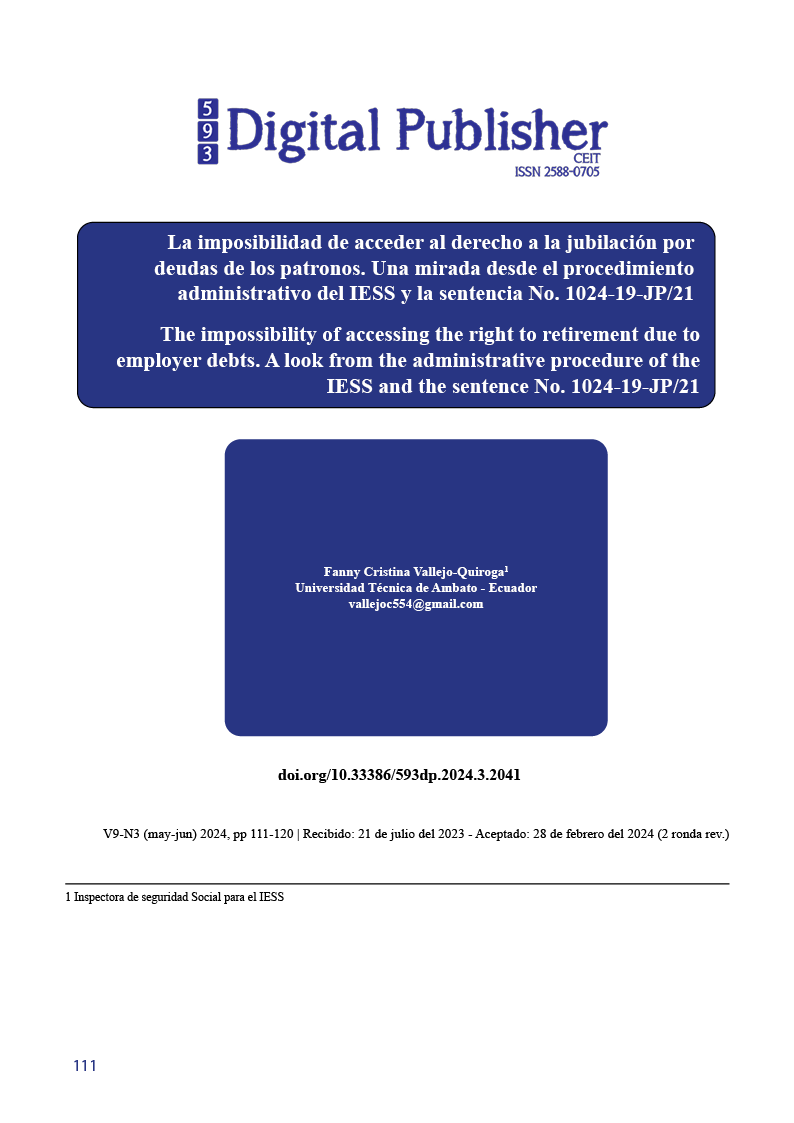The impossibility of accessing the right to retirement due to employer debts. A look from the administrative procedure of the IESS and the sentence No. 1024-19-JP/21
Main Article Content
Abstract
Within this article we will highlight the violation of rights suffered by workers when their employer fails to pay contributions to the IESS despite the fact that said contribution has been deducted from the worker.
This breach by the employer makes it impossible for the worker to access the right to retirement, although it is true that the IESS authorizes the creation of exceptional payrolls so that it is the worker or the employer who can pay the debt and thus the worker can access the retirement, a big question arises: is this act of simple administration enough to support the rights of the worker? a process that, by not being agile, causes a violation of rights of double affectation since the IESS instead of focusing on the collection of the employer's late payment to the employer focuses on collecting amounts owed that in most cases the worker pays when being submerged in his desperation to be able to access his right to retirement.
Downloads
Article Details

This work is licensed under a Creative Commons Attribution-NonCommercial-ShareAlike 4.0 International License.
1. Derechos de autor
Las obras que se publican en 593 Digital Publisher CEIT están sujetas a los siguientes términos:
1.1. 593 Digital Publisher CEIT, conserva los derechos patrimoniales (copyright) de las obras publicadas, favorece y permite la reutilización de las mismas bajo la licencia Licencia Creative Commons 4.0 de Reconocimiento-NoComercial-CompartirIgual 4.0, por lo cual se pueden copiar, usar, difundir, transmitir y exponer públicamente, siempre que:
1.1.a. Se cite la autoría y fuente original de su publicación (revista, editorial, URL).
1.1.b. No se usen para fines comerciales u onerosos.
1.1.c. Se mencione la existencia y especificaciones de esta licencia de uso.
References
Julián Arturo De Diego, Manual De Derecho Del Trabajo Y De La Seguridad Social, Buenos Aires, 2000, Pág. 691
Julián Arturo De Diego, Manual De Derecho Del Trabajo Y De La Seguridad Social, Buenos Aires, 2000, Pág. 693
Ramiro Ávila Santamaría, La Constitución del 2008 en el contexto andino. Análisis desde la doctrina y el derecho comparado, Quito, 2


